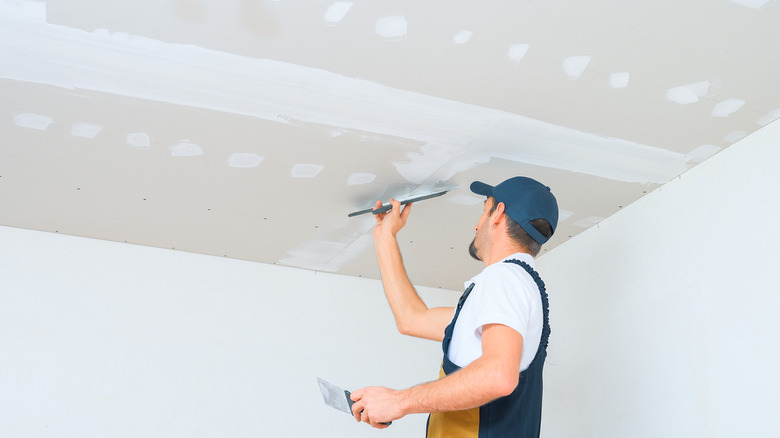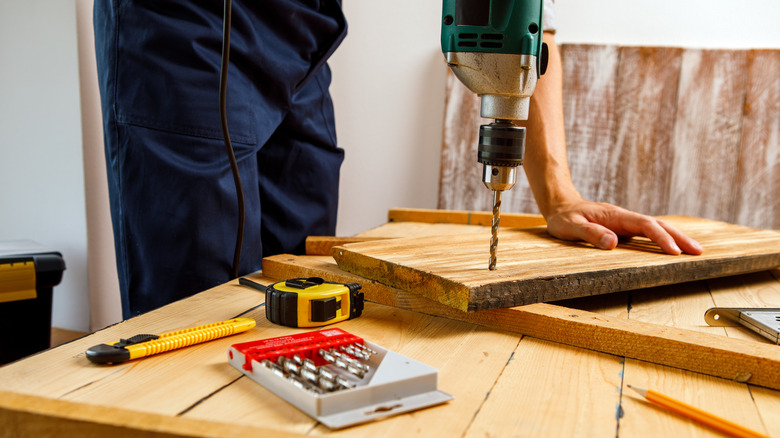Will Your Renovation Actually Add Value To Your Home?
Renovations are booming across the United States with more than $400 billion spent each year on remodeling projects in the residential space, notes Harvard universitys' Joint Center for Housing Studies. One of the primary benefits of homeownership is the ability to customize a property to your exact specifications and needs. While everyone approaches the interior and external spaces of their home in a slightly different way, these choices can make for an amazing divergence of home improvement opportunities across the real estate marketplace.
But home renovations don't always provide both the utility and lasting fiscal value that many homeowners hope for. CNBC reports that while spending is increasing in, return on investment is down, averaging out at 56% ROI across all projects.
Targeting renovation opportunities that bring in the highest returns is a good way to turn the tables in your favor. Fortune Builders note that many of the highest-earning home improvements are those that fall within the minor to moderate financial range. Smart home improvement planning isn't always possible though; occasionally your home will need a certain kind of remodeling procedure that isn't going to bring in the same kinds of returns as say a minor bathroom renovation (averaging a 102% ROI, according to Fortune Builders). Employing alternative strategies to see your hard work pay out dividends is, therefore, essential.
Keep the project scope to a minimum
Small-scale renovation is the best course of action when seeking value, explains CNBC and Fortune Builders. Smaller projects are easier to manage when it comes to sticking within a budget, and many small-scale renovations can even be performed by homeowners themselves.
CNBC also notes that homeowners often go into the renovation space thinking about grand designs for their home and its living spaces. You may be considering a kitchen or living room overhaul that transforms the space into something that perfectly fits your unique needs. This is great for homeowners who want to maximize their own personal comfort, however, a potential buyer is often unlikely to see the space in the same way. Toning down the scale of your renovation will help you focus on functional changes that you want for the property while also ensuring that you don't inadvertently spend precious capital on elements that will take away from the value. The more features a prospective buyer dislikes, the less they will be willing to spend on the home.
Plan to stay in your home
One strategy that you can employ is to simply remain in the home for many more years. Staying in your home can even out the effects of many renovation decisions. Themed bedrooms, for instance, might provide your children with great enjoyment and comfort, but they will likely need to be remodeled once you move out. One remedy is to remain in the property until the bedrooms would need reconfiguring anyway. This gives you many years to enjoy your home while ensuring that you don't have to then pay specifically to remove personalizations that made it unique.
While some additions can infuse value immediately, notes Clever. Luxury amenities like hardwood flooring or granite countertops see a dispersion of cost across a longer timeline. Instead of investing a considerable amount of capital in these additions and then hoping to recoup the costs in the resale, you are able to enjoy the luxury and then benefit from enhanced property value after a number of years have passed.
Conduct renovations early in your tenure
Another approach to the use of time is to complete renovations as soon as you move into a home. The New York Times reports that homeowners average 13.2 years in their homes. This is more than enough time to enjoy the typical benefits of market inflation. If you engaged in critical renovations at the beginning of your time in the property (whether that's the average duration, a shorter stint, or a much longer timeline) you could naturally benefit from both the maximum enjoyment in the home and the greatest inflation-based benefit.
Instead of planning out your renovations and the years you'll need to remain in the home to make the structural change financially viable (a sort of break-even calculation), bunching your most valuable home improvements alongside the purchase of the home itself can make this an inherent component of your time at this address.
Understand that not all renovations add fiscal value
Some renovations make sense for homeowners, based on their lifestyle needs and the quality of life they require. Not every home improvement decision in the life of a homeowner will be based solely on the financial calculation of its outcome. You may need to add an extra bedroom to facilitate the birth of a new child or create additional space for an in-law's arrival as a permanent member of the household.
Many homeowners have also begun to work from their homes. Per Pew Research Center, as of May 2022, an estimated 59% of people report working from home. A remodel that adds a dedicated workspace or transforms a spare bedroom into an office can be immensely rewarding, regardless of whether the improvement adds value to the home's bottom line in terms of resale value.




